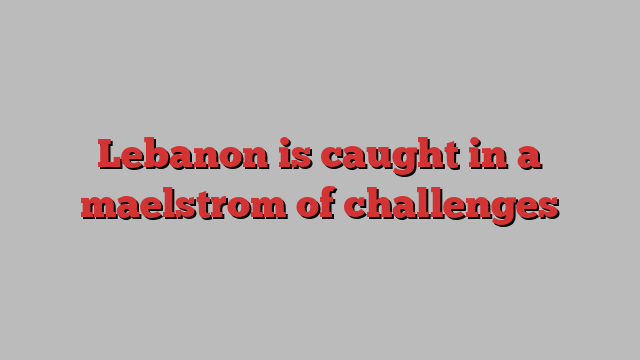
Unlock the Editor’s Digest for free
Roula Khalaf, Editor of the FT, selects her favourite stories in this weekly newsletter.
The writer is author of ‘Black Wave’, distinguished fellow at Columbia University’s Institute of Global Politics and an FT contributing editor
A month after the start of Israel’s multipronged shock and awe military campaign against Hizbollah and Lebanon, the Lebanese are barely coming to grips with the enormity of what has befallen their country.
A quarter of Lebanon is now under Israeli evacuation orders. Almost a quarter of the population is on the move, sleeping in schools, on the street, in rented houses or hotel rooms — whatever they can find or afford. After two weeks of intense shelling of the densely populated southern suburbs of Beirut, there were a few quiet nights. But drones buzz loudly, incessantly over the city. The war rages on in the south and the Bekaa Valley. More than 2,300 people are dead, many of them women and children.
Whole towns have been razed to the ground. The Israeli Prime Minister Benjamin Netanyahu has threatened to turn Lebanon into another Gaza and demanded that UN peacekeepers deployed in the south get out of the way. Meanwhile, the man who exerted a chokehold on Lebanon’s politics for two decades, adulated and hated in equal measures, Hassan Nasrallah, leader of Hizbollah, is dead.
In this maelstrom, Lebanon faces multiple challenges. First, the social pressures are tremendous. The displacement of more than a million people from areas targeted by Israeli strikes has squished people against each other in different parts of the capital.
There is an overwhelming sense of solidarity and civil society has sprung into action to shelter and feed refugees where the state has faltered. But in a country already in crisis — without a president for two years, only a caretaker cabinet, a collapsed economy and already home to more than a million Syrian refugees — the ability to sustain such an effort will be limited. The friction of life in close quarters in overpopulated neighbourhoods is feeding social and sectarian tensions.
The country feels it is being punished for a decision Hizbollah made on its own, tying Lebanon’s fate to Gaza and dragging the country into war. But bearing the brunt of Israel’s wrath is the Shia community, their towns and neighbourhoods are the milieu in which Hizbollah operates, even while many Shia do not support or belong to Hizbollah. Israeli strikes have also hit other areas, where Israel alleges it is targeting Hizbollah members who have dispersed. On Monday at least 21 people, displaced from the south, were killed in northern Lebanon in such a strike, deep in the Christian heartland, including five women and two children. The UN has called for an investigation.
Netanyahu may believe this will push the rest of Lebanon to rise against Hizbollah or the Shia — but it is a recipe for civil war. The political challenges internally are enormous and delicate. A solid majority of Lebanese oppose Hizbollah. But while its opponents, and even its allies, see an opportunity to curtail its power, no one in Lebanon is looking to ride an Israeli tank to a victory crushing another political party or community.
That lesson was learnt in 1982 during Israel’s last large-scale invasion. And now Lebanon, which has watched the destruction of Gaza over the past year, is deeply wary of Israel’s intentions. In addition, while Hizbollah’s leadership has been decapitated, it has not raised the white flag. Its patron, Iran, still looms large in the background.
Hizbollah was never Lebanon’s only problem — it was part of a corrupt system which it helped uphold. The country’s bickering politicians have yet to unite in the face of crisis. The election of a president is high on the agenda, but no agreement has yet been reached and opinions differ about timing. Elect someone quickly to negotiate the terms of a ceasefire? Or wait for a ceasefire to avoid any doubts about the legitimacy of the election?
There is a lot of international diplomatic activity but no ceasefire in sight; and there probably won’t be one before the US elections. Which brings us to some of Israel’s war aims, aside from the declared, unattainable goal of destroying Hizbollah.
Israel has spoken of limited ground incursions and insists it will not occupy southern Lebanon. Defence minister Yoav Gallant said the army would raze villages along the border one by one. Several have been levelled already. The goal appears to be to create a depopulated buffer zone several kilometres deep inside Lebanon, which Israel can police from its own territory. Ostensibly, Israel wants to keep Hizbollah away from the border. But it also means no one from these villages is going home any time soon. The war grinds on and its impact, on the south and all of Lebanon, will be long lasting.